Navy steps up North Sea energy patrols
- Published
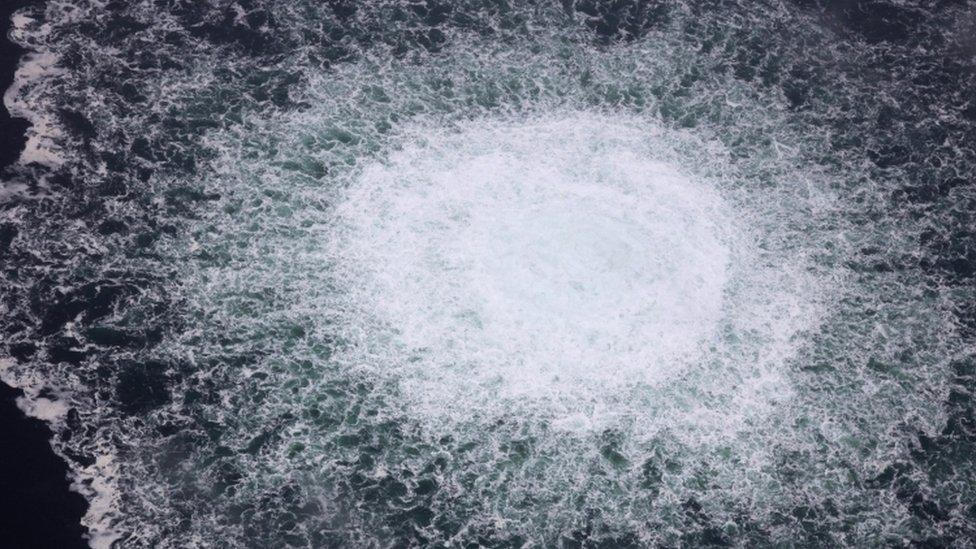
The gas leaks from the Nord Stream pipeline stem under the Baltic Sea will take months to repair
A British frigate has been deployed to work with the Norwegian navy on increased surveillance of offshore oil and gas installations following the rupture of two pipelines.
The industry is working more closely across boundaries, and with security and intelligence agencies, to protect assets against sabotage.
Military planning also extends to protection of trans-Atlantic telecom links, which have become vital highways for the global economy, and which are hard to defend.
Two pipelines under the Baltic Sea have been belching gas - spelling bad news for the environment, and for European security.
As both Nord Stream pipelines were ruptured at around the same time, it's hard not to conclude that this was sabotage.
Nato blames Russia - though it's not obvious to me why Russia would sabotage pipelines that have, until recently, secured for it a lot of foreign earnings and made Europe dangerously dependent on Moscow's whim.
Far to the north, drones have been spotted around Norwegian offshore oil and gas installations. They're unwelcome and unexplained, and it's not clear if they're controlled from sea or land.
Norway's government responded with an announcement that it is stepping up security around its offshore energy assets.
To the west and south, in British waters linking 282 oil and gas producing fields, there is a colossal quantity of infrastructure, plus a fast-growing tonnage of equipment to harvest the wind, each turbine linked to the mainland by sub-sea cables.
Across international sea boundaries, there are more than 1,300 oil and gas installations in the North Sea. All of them are vulnerable to acts of sabotage by those with a grudge against western Europe, a desire to undermine those countries' energy security, and an ability to deliver on that threat.
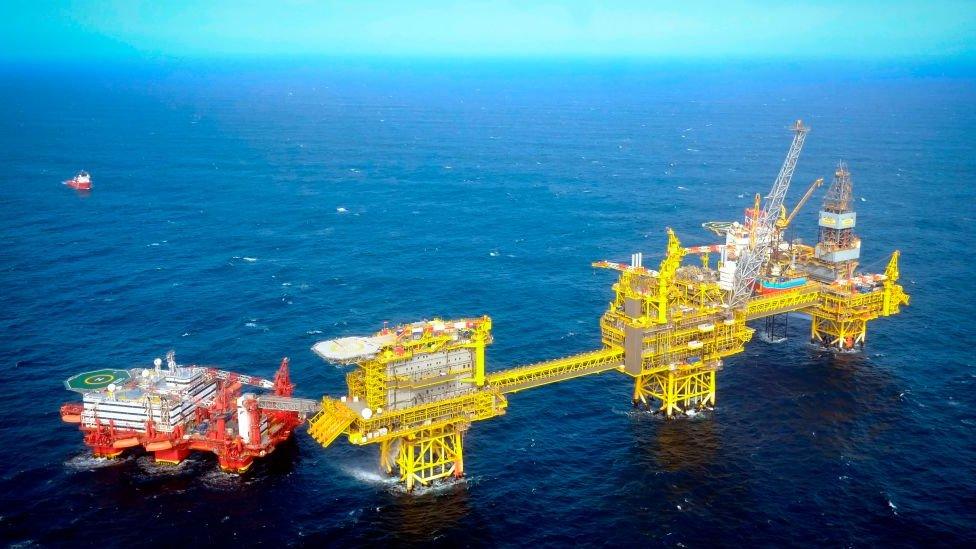
Platforms in the North Sea are part of the UK's energy infrastructure
A map of the North Sea's platforms and pipelines, external shows what a sizeable chunk of the British economy lies a long way from its coast.
This was factored in to the development of oil and gas during the Cold War. And now that near-hostilities between Nato and Russia have become a fact again, those security concerns have been revived.
That's why the Ministry of Defence has deployed a Royal Navy frigate to work with the Norwegian navy. It's reported to be HMS Somerset, although that is not being confirmed.
A tweet this week from the MoD said it is there "to reassure those working near the gas pipelines, external".
This "increased maritime presence" is explicitly in response to the "deliberate damage" to the Nord Stream pipelines in Swedish waters, it said.
For a decade, there was no maritime surveillance by RAF aircraft, but that changed between October 2020 and January this year, when nine P-8A Poseidon aircraft were based at RAF Lossiemouth in Moray.
Their primary role is finding and tracking submarines in the North Atlantic, so recent events have made that function more than merely a distant threat.
Offshore Energies UK, representing the oil and gas sector, briefed a fortnight ago that it has stepped up its co-operation across companies and with other countries in countering any such threat. That includes the Netherlands, Denmark, Germany and particularly Norway.
Internet cables 'easy to find'
The efforts are co-ordinated through the Centre for the Protection of National Infrastructure, based in Whitehall's business department, drawing on links with the Ministry of Defence and intelligence services. Its job is to monitor threats to 30 sectors, including nuclear power, emergency services, online infrastructure and offshore energy.
Offshore, the first line of defence around producing platforms is a 500m (1,640ft) controlled zone, patrolled by a stand-by vessel.
Mark Wilson, health, safety and operations director at Offshore Energies UK, said the raised awareness of security issues was "precautionary" for now, with no increase in the threat level since last February.
"We want to make sure we act in a way that is proportionate, pragmatic and prepared," he said.
Attacks on North Sea oil and gas installations could get messy for the environment, and dangerous for the thousands who work offshore, but at least as big an economic impact could be achieved by targeting telecoms links across the Atlantic.
Commercial internet traffic is heavily dependent on those cables.
They are long, relatively easy to find if you have a submarine fleet, and hard to defend against a foreign submarine fleet that is determined to cut them.
- Published6 October 2022
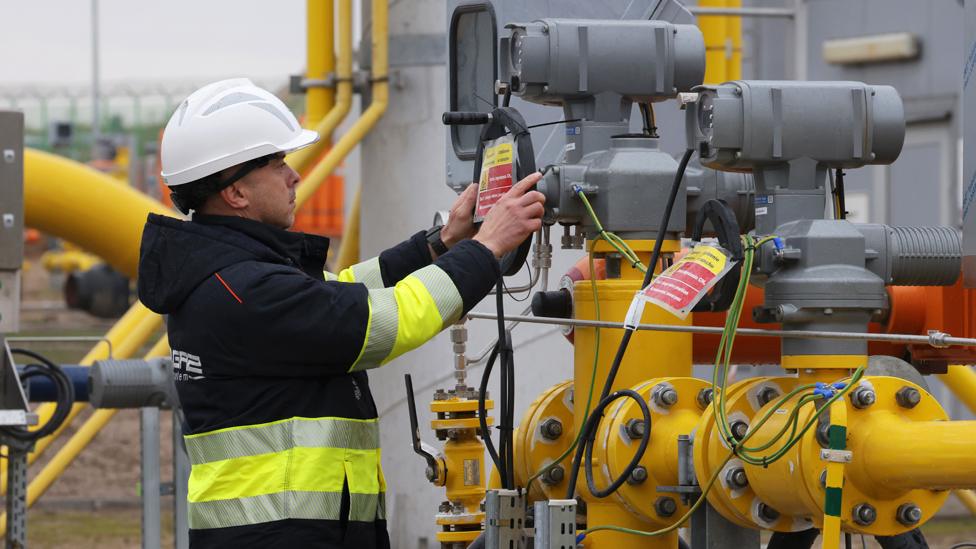
- Published3 October 2022
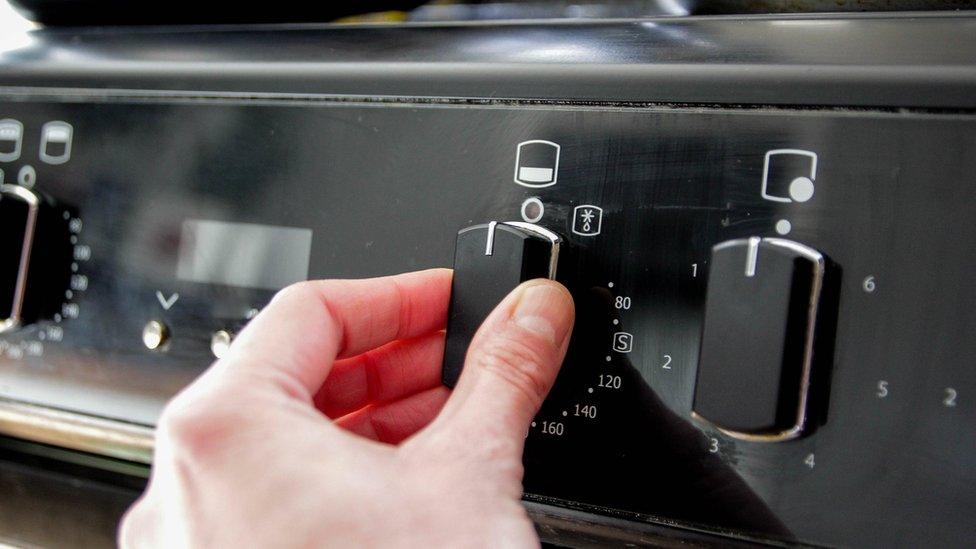
- Published30 September 2022

- Published22 July 2022
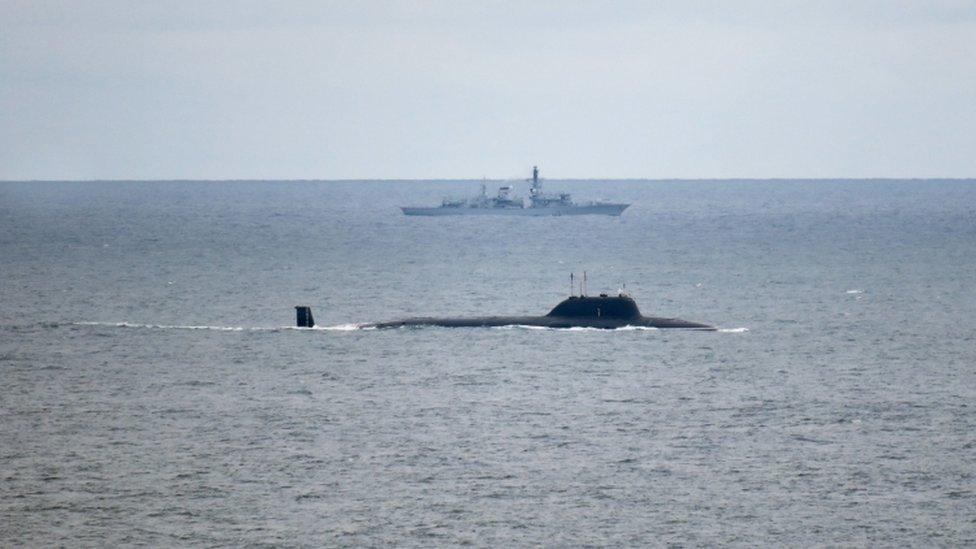
- Published28 April 2022

